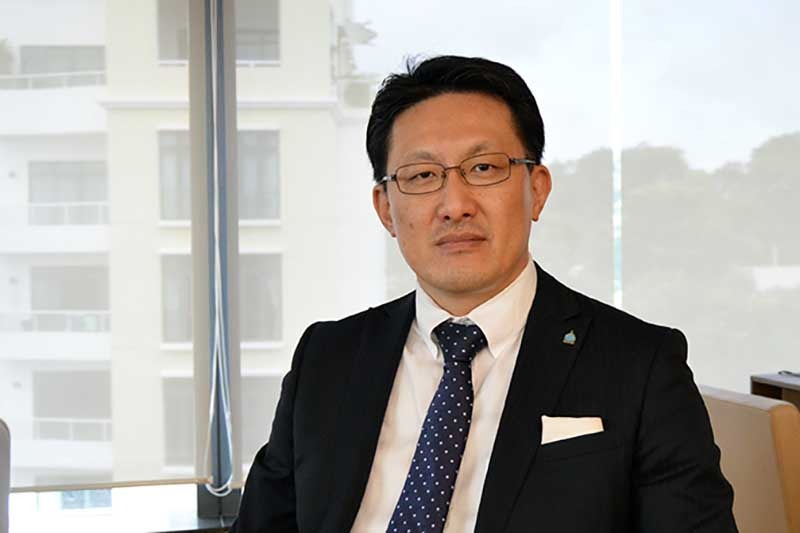
One of INTERPOL’s top priorities this year is fighting cybercrime. As cybercrime is ‘borderless by nature’, the sheer threat of targeted attacks on government agencies is daunting.
Since established in 2014, the INTERPOL Global Complex for Innovation (IGCI) has acted as a research and development facility for the identification of crimes and criminals. Based in Singapore, IGCI provides innovative training and operational support to law enforcement, for its 190 member nations. Its focus is on the area of technology-enabled crime.
INTERPOL’s IGCI works to combat cybercrime through various initiatives, work, and research. For example, INTERPOL’s Cyber Research Lab created Darknet Training, which recreates the virtual ‘underground’ environment used by criminals to avoid detection.
It is a five-day course where participants pretend to be vendors, buyers and administrators to improve their understanding of the technical infrastructure of the Tor network hidden services, the structure of illicit marketplaces, and cryptocurrencies.
INTERPOL also provides capacity building programmes to its member countries that include digital forensics and cybercrime investigations.
As we were interested in learning more about INTERPOL’s efforts to combat cybercrime, we spoke to Noboru Nakatani, Executive Director, INTERPOL Global Complex for Innovation. He told us more about the role of INTERPOL in tackling cyber threats in the region and how they encourage security knowledge-sharing amongst member nations.
Previously, Mr. Nakatani held the role of Director of Information Systems and Technology at the General Secretariat headquarters of INTERPOL. He had also served as Assistant Director, INTERPOL’s Financial and High Tech Crime division. During this time, he specialised in issues relating to cybercrime and cyber security.
As Executive Director, Mr. Noboru Nakatani uses his expertise to drive stronger cybersecurity efforts by member nations, through knowledge sharing and public-private partnerships. He is personally motivated to make the world a safer place, and where else is a better place to do that than at INTERPOL.

Knowledge Sharing to Protect against Cybercrime
Cyber security is no longer back of mind for government. This year it is the greatest priority to government agencies, since we have all bore witness to recent large scale government breaches.
Mr. Nakatani told us that he believes that investing in cybersecurity lies in the true role of government to serve and protect its people.
“Cybersecurity is not risk itself, risk is not to invest in cyber security,” stated Mr. Nakatani, “The most important duty of the government is to protect its country, citizens, companies, and the government itself. The function lies in that context. So how can government provide safe and secure environments, not only on the ground, but in the cyber physical space?”
Mr. Nakatani admits that this is not easy to answer. This requires government to reassess the role and responsibilities of their public safety and defence forces in order to meet the demands of the digital age.
Yet, governments can start to unravel the answer to what the right security approach is, after identifying what the cause of the problem is.
“It is challenging because the current way of protecting citizens is based on the nation-state model,” said Mr. Nakatani, “Information sharing is not the panacea for the problems we are facing, but it provides a lot of support.”
Since these strategies do not come in ‘one size fits all’, it is important that INTERPOL gathers enough information and input to assess the condition of cyber security in a particular country.
They can then advise as to what other countries are doing to protect themselves from the growing threat landscape.
“We need to come down to the street level of policing, which is carried out by the member countries, and we provide realistic information to them and ask the government if they want to work with us based on the information we give,” Mr. Nakatani told us,
“We ask the country’s concerns, with respect to specific crimes. Then, we tell them what the international best practices are, which they can take into consolation into the national policing structure.”
The examples they give to these member nations are borrowed from more developed countries who have substantial experience, in terms of cybercrime.
This helps the other countries who do not follow best practices, and are in need of better security infrastructure. Mr. Nakatani emphasised how crucial this is to help fight the growing threat concerns.
“This helps spread these best practices outward and make it an interoperable mechanism. Capacity building is important because some countries know how to solve the concerns of other countries,” said Mr. Nakatani, “To harmonise, not only legislation, but also the practical way of working is pragmatically important. It will also help create a de facto standardisation of cybersecurity.”

Focusing on imminent threats through public-private partnerships
This year, INTERPOL IGCI will continue focusing on its core mission, to fight cybercrime. With this, they must work to enhance police capabilities to provide evidence of cyber threats to courts.
As more and more organisations are being targeted for cyber-attacks, investigation must be made in collaboration with the private sector in order to prevent future attacks.
INTERPOL recently revealed a partnership with a private financial institution that would be providing full-time staff to work alongside INTERPOL in the Cyber Fusion Centre.
The Cyber Fusion Centre (CFC) provides a global, neutral and secure physical platform for international law enforcement, private sector and academia to share information and work together against cybercrime in a collaborative environment.
“It is a "nerve centre" for facilitating cross-jurisdictional cybercrime investigation and providing actionable intelligence to INTERPOL's member countries,” stated a spokesperson from INTERPOL IGCI.
Here, INTERPOL and the financial institution will work to enable effective information-sharing and response to imminent cyber threats.
This partnership follows the recent World Economic Forum publication ‘Recommendations for Public-Private Partnership against Cybercrime’ which highlighted the need for cooperation and knowledge-sharing between businesses and law enforcement.
















